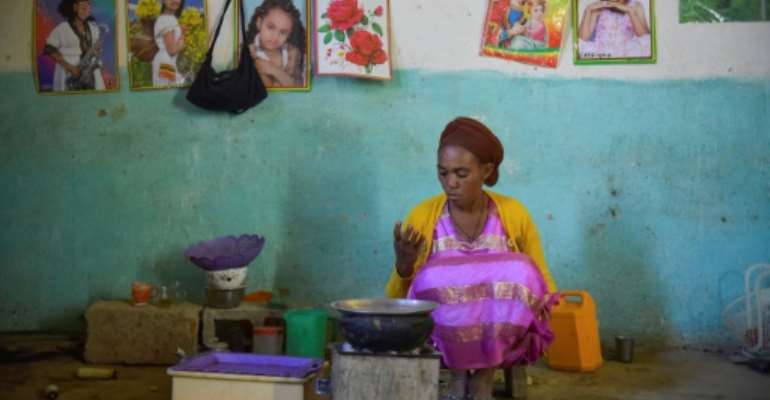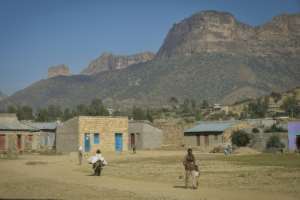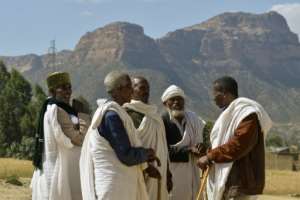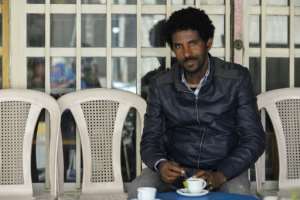This interview – published by the Eritrean Ministry of Information – reveals the depths to which some UN officials have sunk.
How can Ms Mohamed say that: “We had an inspiring discussion with the President who reiterated what has been learned from a journey –through war and isolation into peace and the importance of keeping the peace not just for Eritrea but the regional integration for the Horn of Africa and the rest of Africa.”
Is she truly unaware of the evidence of Eritrean arming and training of rebel movements across the Horn of Africa, from Somalia to Ethiopia. Does she not know that Eritrea attempted to bomb the African Union summit in Addis Ababa in January 2011 – according to the UN’s own report?
The UN then reported that: “Whereas Eritrean support to foreign armed opposition groups has in the past been limited to conventional military operations, the plot to disrupt the African Union summit in Addis Ababa in January 2011, which envisaged mass casualty attacks against civilian targets and the strategic use of explosives to create a climate of fear, represents a qualitative shift in Eritrean tactics.”
Has Ms Mohamed not seen the UN’s own report saying that in Eritrea: “Much of the population is subject to forced conscription and labour, sometimes in slave-like conditions.”
Martin
The world needs to share Eritrea’s recipe of “unity, equality and dividend of peace” according to UNDSG Amina J. Mohamed
| Articles – Q & A |
“There are countries that have done none with more opportunities. But Eritrea with its own resources is doing a lot on development. I am excited because I’m witnessing the real Eritrea, not Eritrea on Social Media.”
A joint high-level UN-AU delegation, led by Deputy Secretary General Ms. Amina Mohammed, made a two-day work visit as part of a series of visits to neighboring countries of the Horn.
During its stay the high-level delegation met with the President, the Ministers of Justice, National Development, Information, Labor and Social Welfare and the President of the National Union of Eritrean Women (NUEW).
The delegation further held an interactive session with young Eritrean professionals. The delegation visited several projects including Mislam Dam, the Nefasit-Dekemhare-Serha road that is under construction and more. I spoke to both the heads of the UN and AU delegation.
Read today’s Q&A as we give you a glimpse of their stay and experience in Eritrea in their own words.
Deputy Secretary General, Ms. Amina Mohammed
- Welcome to Eritrea. Your impressions and thoughts on your mission to Eritrea…
We arrived yesterday on a joint solidarity mission for peace, security and development. We went straight to the filed. We experienced the investments that Eritrea is making in infrastructure; we visited the road that connects to Ethiopia. We also saw a multi-purpose dam, which for us is really important to witness how Eritrea has focused on water and is actually putting its own investment in it. Most exciting about that was seeing young Eritreans involved: engineers from Eritrea, but also from the diaspora. We ended up in a dairy farm where we saw entrepreneurship of a woman and her family producing products equal to global standards.
- You have also met with the Eritrean leadership. How was it to actually speak with the ministers and the President himself?
We met with the ministers and saw that they are very focused on the priorities of this country; a country that has come out of war into peace. And that is actually what we wanted to hear because that is what we need to support. We had an inspiring discussion with the President who reiterated what has been learned from a journey –through war and isolation into peace and the importance of keeping the peace not just for Eritrea but the regional integration for the Horn of Africa and the rest of Africa.
- You’ve had a chance to meet the President of NUEW and had a round table discussion with young professionals over traditional Bun! How was it?
And what a better note to come and speak with young people and the Eritrean women who have been on the forefront in the struggle for freedom, and, now, in the fight for sustainable development! We realized the challenge of finding a seamless transition from one generation to another; having the young people at the front with their vision, energy and capacities and support them to strengthen their capacities and make sure that they are taught of what Eritrea has done and what it can do both for Africa and for the globe itself.
- You are the second high level delegation of the UN visiting Eritrea within a time frame of a month. What is the reason behind this?
The fact that now Eritrea is engaging with the world is a big thing. It has been in isolation for a long time. We know that there are remaining challenges but if we want to see Eritrea proceed then we have to start understanding the country’s priorities. We need to know where the country is coming from and where it would like to go and together see how we can support that. The UN has been in Eritrea for a long time and intends to stay as long as it can. There are many different aspects of the UN that the government is speaking with now to see how we can consolidate that partnership. That is what we’re bringing in terms of the system, which is pretty big.
- And if you may, Mrs. Deputy Secretary General, what will your role be in the process you just mentioned?
For me this is about advocacy for the things that Eritrea is doing well.
To amplify that so that people can see and feel encouraged by the stability that is being created in the political will to have peace as a future not just for Eritrea but the region as well.
Moreover, it will be also about addressing the challenges. What more challenges and gaps have we got? Whether it is in development or human rights, all of that needs to be addressed if one is to be an equal member of the global community. And so I see this as the first of many conversations and activities for the future. We are hearing from young people who tell us what they would like and how they’d like to be part of the networks that are regional and global… so we’ll need more, not us giving you prescriptions, but you telling us what you need. That will help us find solutions together.
- Thank you for your time. Is there anything you’d like to put on an ending note?
Yes. I think there are three things that Eritrea should share with the world. The first is what we saw and felt as well, your unity. There aren’t many countries that are as unified as you are and I think that the next generation should share this value with young generations across the border. The second trait is how the government has approached equality. I think in many countries inequality is the root-cause of destructions that we see. And last, whatever Eritrea has gained as a dividend of its past must be carried on as a dividend for peace in the future; and that is based on gender equality. You have it in many places. Don’t take it for granted and you, the young people, must hold on to it tight as well.
Mrs. BENITA DIOP, AU special envoy on Women, peace and security
What we have said as women for peace, security and development from both the AU and the UN was listen to the women in Eritrea and the leadership.
And what we found is something that we need to echo because we need to change the narrative. I think here we have seen a country that has been resilient despite challenges.
A country that has been striving to show the world that it has been working to develop its own economy. A country that has put women as part of its undertakings for development. Speaking with the Head of State of Eritrea we realized that this is normal; Eritrean women fought for liberation and now are on the field working on agriculture and much more in the fight for development.
We at the AU have put in place, along with the UN, programs for young people to connect so that they share their experience and accelerate and innovate. So it will be important to involve young Eritreans as well.
I have been very happy about my visit to Eritrea. I will take the message to the AU but also to my sisters in the African Women’s movement. I have actually been to Eritrea during the border war. I, then, met with Mrs. Luul Ghebreab and visited the war field. We visited the displaced camps and young men and women fighting in the war. The disaster of war was heavy but we saw women who stood next to their brothers to defend their nation. We appreciated what the young women were selflessly doing back then; nevertheless, we really hoped for peace. And today, I comeback at a time when Eritrea and Ethiopia have made peace I am glad to have been here on this joint mission.
I have been in good contacts with several Eritrean women having had a chance to work with them in different contexts. The intergenerational cooperation of the youth and the old working together to build Eritrea is an example for us to learn from.

















 http://smc.sd/en/wp-content/uploads/sites/2/2019/10/Al-Burhan-120x86.jpg
http://smc.sd/en/wp-content/uploads/sites/2/2019/10/Al-Burhan-120x86.jpg
















